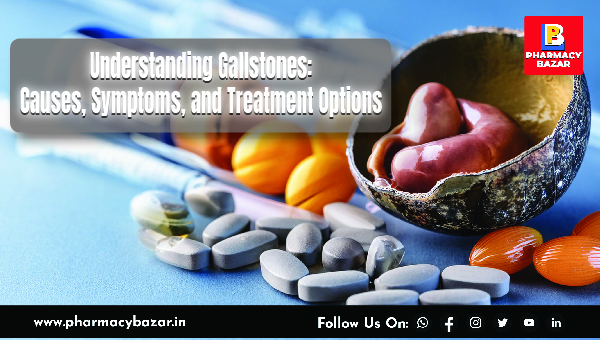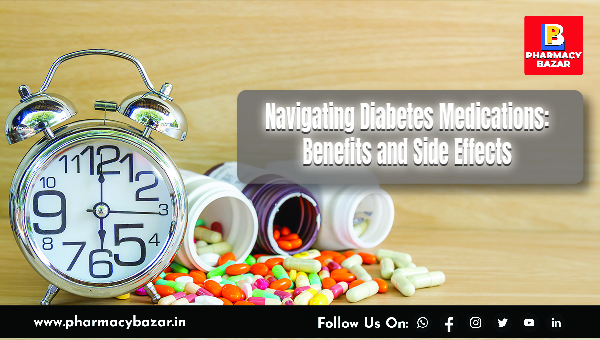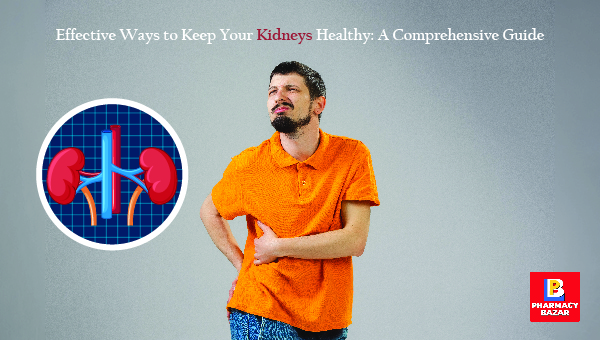Effective Ways to Keep Your Kidneys Healthy: A Comprehensive Guide
Apr 03, 2023
The KIDNEY is a bean-shaped organ located on both sides of the spine in the lower back, just above the waist. Each KIDNEY is about the size of a fist and weighs about 5 ounces.
The primary function of the KIDNEY is to filter the blood to remove waste products and excess fluid from the body. The KIDNEYs also play a crucial role in regulating electrolytes, maintaining blood pressure, and producing hormones that stimulate red blood cell production and help keep bones healthy.
The KIDNEY works by filtering the blood through millions of tiny filters called nephrons. Each nephron consists of a glomerulus, a tiny cluster of blood vessels that filters the blood, and a tubule that collects the filtered fluid and directs it to the bladder as urine.
The KIDNEY filters around 120 to 150 quarts of blood per day, producing around 1 to 2 quarts of urine. The KIDNEYs regulate the amount of water and electrolytes in the body by adjusting the amount of urine produced. When the body needs to conserve water, the KIDNEYs produce less urine, and when the body needs to eliminate excess water, the KIDNEYs produce more urine.
The KIDNEYs also play a vital role in regulating blood pressure. The kidneys release a hormone called renin that constricts blood vessels, increasing blood pressure when the body needs it. The KIDNEYs also filter out excess sodium, which can raise blood pressure if it accumulates in the body.
The KIDNEY is a vital organ responsible for several essential functions in the body, including filtering waste products and excess fluid from the blood, regulating electrolytes, maintaining blood pressure, and producing hormones that stimulate red blood cell production and bone health. Understanding how the KIDNEY works are essential for maintaining overall health and wellness.
So, The KIDNEYs are essential for maintaining overall health and wellness, and taking good care of them is crucial. In this article, we will discuss some effective ways to keep your KIDNEYs healthy.
Stay hydrated
Water is essential for the KIDNEYs to function properly. It helps to flush out waste products and toxins from the body. Therefore, it is essential to stay hydrated by drinking plenty of water and fluids throughout the day. Aim for at least eight glasses of water per day, and increase your intake if you are exercising or in hot weather.
Eat a balanced diet
A healthy diet is crucial for maintaining KIDNEY health. A balanced diet that includes fruits, vegetables, whole grains, lean proteins, and healthy fats can help prevent KIDNEY damage and reduce the risk of developing chronic KIDNEY disease. Avoid foods that are high in sodium, saturated and trans fats, and refined sugars, which can contribute to high blood pressure and KIDNEY damage.
Manage your blood pressure
High blood pressure can damage the blood vessels in the KIDNEYs and impair their function. It is essential to keep your blood pressure within a healthy range by adopting healthy lifestyle habits, such as regular exercise, a balanced diet, and stress management techniques. If your blood pressure is consistently high, talk to your doctor about medication options.
Manage your blood sugar
High blood sugar levels can damage the KIDNEYs over time, leading to chronic KIDNEY disease. If you have diabetes, it is crucial to managing your blood sugar levels through regular monitoring, medication, and lifestyle changes. Maintaining a healthy weight, exercising regularly, and following a balanced diet can also help prevent complications from diabetes.
Exercise regularly
Regular exercise can help maintain overall health and wellness, including KIDNEY health. It can help lower blood pressure, reduce the risk of developing chronic KIDNEY disease, and improve cardiovascular health. Aim for at least 30 minutes of moderate-intensity exercise per day, such as brisk walking, cycling, or swimming.
Quit smoking
Smoking can damage the blood vessels in the KIDNEYs, leading to impaired KIDNEY function and an increased risk of developing chronic KIDNEY disease. If you smoke, quitting is one of the best things you can do for your KIDNEY health, as well as your overall health.
Limit alcohol consumption
Excessive alcohol consumption can damage the KIDNEYs and lead to dehydration, which can impair KIDNEY function. Limit your alcohol intake to one or two drinks per day, and avoid binge drinking.
In conclusion, the KIDNEYs are essential organs that perform crucial functions in the body. Maintaining KIDNEY health is crucial for overall health and wellness. By following these simple tips, you can keep your KIDNEYs healthy and reduce the risk of developing KIDNEY disease. Remember to stay hydrated, eat a balanced diet, manage your blood pressure and blood sugar, exercise regularly, quit smoking, and limit alcohol consumption. If you have any concerns about your KIDNEY health, speak to your doctor or a qualified healthcare professional.
DISCLAIMER: This article is the property of Pharmacy Bazar and is protected by copyright laws. The information provided in this article is for educational and informational purposes only and is not intended to be a substitute for professional medical advice, diagnosis, or treatment. Always seek the advice of a qualified healthcare provider with any questions you may have regarding a medical condition. Never disregard professional medical advice or delay in seeking it because of something you have read in this article. The author and publisher of this article do not endorse any specific treatments, procedures, or products mentioned in this article.
Recent Post

Blood Cancer: Early Warning Signs and Diagnosis

Understanding Gallstones: Causes, Symptoms, and Treatment Options

Navigating Diabetes Medications: Benefits and Side Effects

Revolutionizing Cancer Treatment: How Unleashing T Cells' Energy Could Transform Immunotherapy

The Power of Lower Back Stretches: Benefits and Best Yoga Asanas for a Healthy Spine

8 Health Conditions That Could Be Due to Magnesium Deficiency

Unlocking Brain Health: How Lifestyle Choices Impact Cognitive Functions

When Speech Takes a Surprising Turn: Unraveling Foreign Accent Syndrome

The Optimal Time to Take Your Vitamin D Supplement: Insights and Best Practices

Beyond Diabetes: Unveiling the Hidden Health Risks of Insulin Resistance

